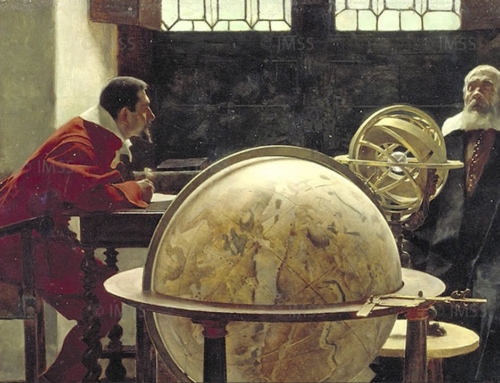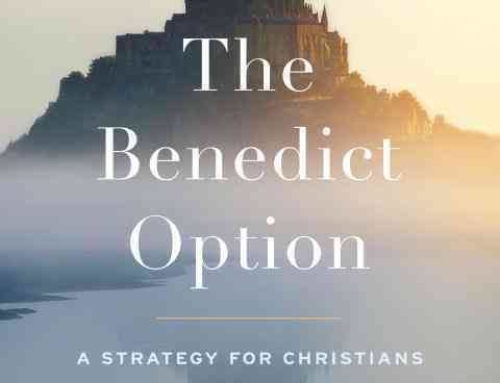 …or how the sweet, but noxious atmosphere of universalism has undermined the Catholic Church’s mission to the world.
…or how the sweet, but noxious atmosphere of universalism has undermined the Catholic Church’s mission to the world.
Ralph Martin is the Director of Graduate Theology Programs in the New Evangelization at Sacred Heart Seminary in Detroit. He is also President of Renewal Ministries and a consulter to the Pontifical Council for the New Evangelization. In this prophetic yet scholarly book Martin charts the rise of universalism in the church (the idea that all will be saved) and the damage it has done to the church’s mission.
He begins by analyzing a key text from Lumen Gentium which allows that some may be saved who follow the light given them from natural revelation or from non Catholic and even non Christian religions, and he shows how influential Catholic theologians have embraced this open ness while ignoring the paragraphs of the document which insist that there are many who do not follow the light they are given and who therefore need to hear the gospel.
Martin discusses the Scriptural background and theological development which brought Catholic theologians to the position of admitting that some may be saved outside the formal ministries of the Catholic Church, then goes on to make a detailed explanation and analysis of the two most influential post-Vatican II theologians in this area: Karl Rahner and Hans Urs vonBalthasar.
Rahner is well known for his idea of the ‘anonymous Christian’–one who lives with goodwill and does not explicitly reject the gospel of Christ. He suggests that most people exist within a context of a ‘supernatural existential’ or a kind of atmosphere of grace, and that this will be enough to bring them to heaven because God’s mercy and love is everlasting and Christ’s redemption reaches all men. Balthasar’s universalist ideas were laid out most explicitly in his late work, Dare We Hope That All Be Saved? Balthasar speculates on the fate of those who reject God’s love, and comes up with various ingenious ideas about how all might be saved.
Martin shows how the thought of both theologians directly contradicts not just one verse of Sacred Scripture, but the entire witness of both the Old and New Testaments. Scripture after scripture is piled up showing that St Paul and the Lord Jesus Christ himself teach not only that hell is real, but that it is heavily populated. The Scriptures put before humanity a stark choice of life or death–heaven or hell, and speculative theologians like Rahner and Balthasar are shown not only to directly contradict Scripture, but also the unanimous and universal teaching of the Church down the ages. Martin shows how Balthasar also mis quotes, mis interprets and selectively chooses texts from the Fathers, the mystics and saints of the church to weight his argument for universalism.
Martin explains how the intentions of the fathers of the Second Vatican Council were noble. They wished to present the Catholic faith in a positive light and to draw people to the ‘abundant life’ in Christ rather than simply scare people out of hell. However, in their optimism they have forgotten a key part of the gospel message. Christ does call us to an abundant and full human life, but he also teaches us that this new life is one of sacrifice and dying to self. Furthermore, should we reject this offer of his love we are choosing death not life, and there are eternal consequences.
Universalism is one of the cancers eating away at the Catholic Church in the modern age. If everyone is saved, why bother with evangelization? Indeed, why bother with becoming a saint if one’s entrance into heaven is guaranteed? Ralph Martin points out that universalism can also be blamed for the lukewarmness and lack of direction of the Catholic Church in the world today. Without any urgency to preach the need to repent or the need for the soul’s salvation, the church has become no more than a social club to further an ideological agenda of inclusion and social welfare.
Martin’s work is balanced, scholarly and calm in its approach, but the implications of his book are groundbreaking. To put it bluntly, we need to remember in all our attempts to be positive and affirming that souls are lost if they do not accept Christ as their savior. Catholics too, must not presume on God’s mercy. Mortal sin is a reality and choosing death over life is a real possibility.
Martin also shows how the affirmative, positive pastoral approach hasn’t worked. Instead of attracting people to Catholicism it has made them shrug and consider it irrelevant. People aren’t stupid. If everyone will be saved anyway, then why bother being a Christian? If being good is good enough, then why bother with church? If living in a congenial ‘atmosphere of grace’ is enough to get into heaven, then why make the effort?
Universalists, like all modernists, underestimate the reality of sin–in both individual lives and on the corporate level. Absurdly optimistic and blind to the reality of humanity’s depravity, they can read of genocide, corruption, immorality, violence, hatred, rape, murder and torture and yet still smile through it all and think that everyone will be saved? The naive optimism of such people is astounding, and the worst part of their betrayal of the Catholic faith is that they have done so giving the impression of faithfulness and of being theologians in good standing.
Ralph Martin’s excellent book should be required reading for all priests, theologians and teachers of religion. It should be bundled with Sherry Weddell’s Forming Intentional Disciples and George Weigel’s Evangelical Catholicism and provided as a textbook for all our seminarians. If we are to evangelize anew, then we must preach a full gospel. Along with the proclamation of the abundant life in Christ, along with the proclamation of the good news of healing and forgiveness we must also preach the truth that there is something to be forgiven, a heaven to be gained and a hell to be feared.
Anything less is a betrayal of the gospel of Jesus Christ.
Go here to learn more about this book.






Leave A Comment
You must be logged in to post a comment.